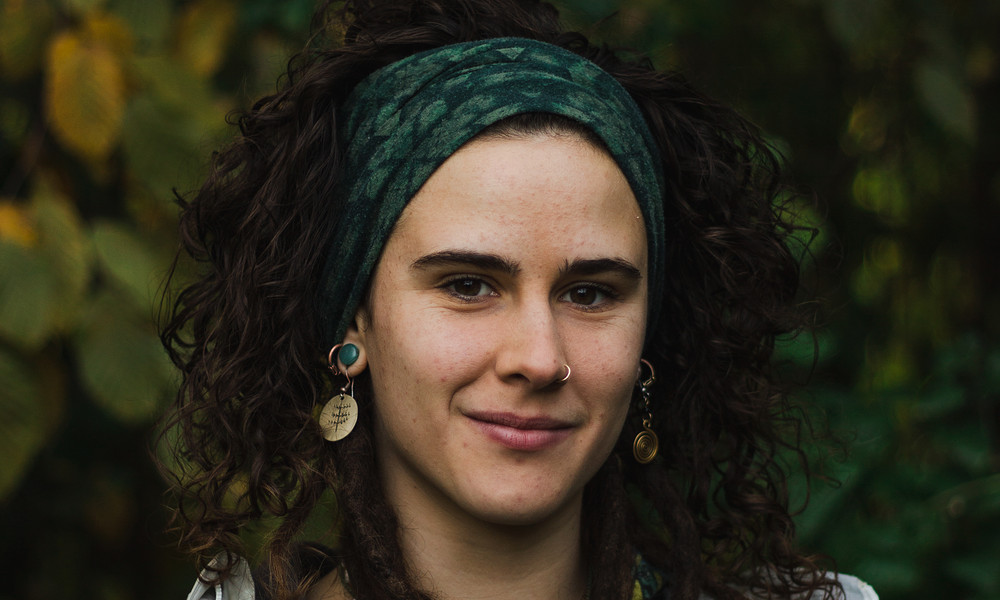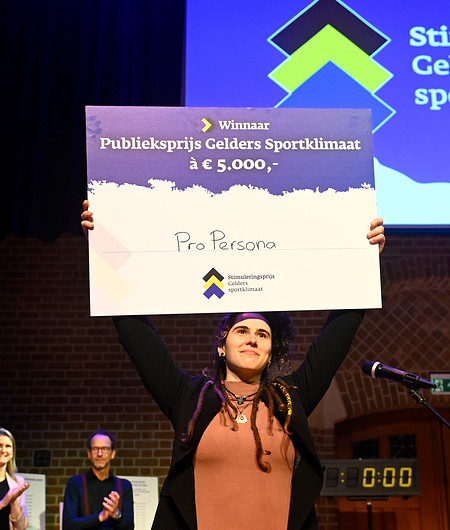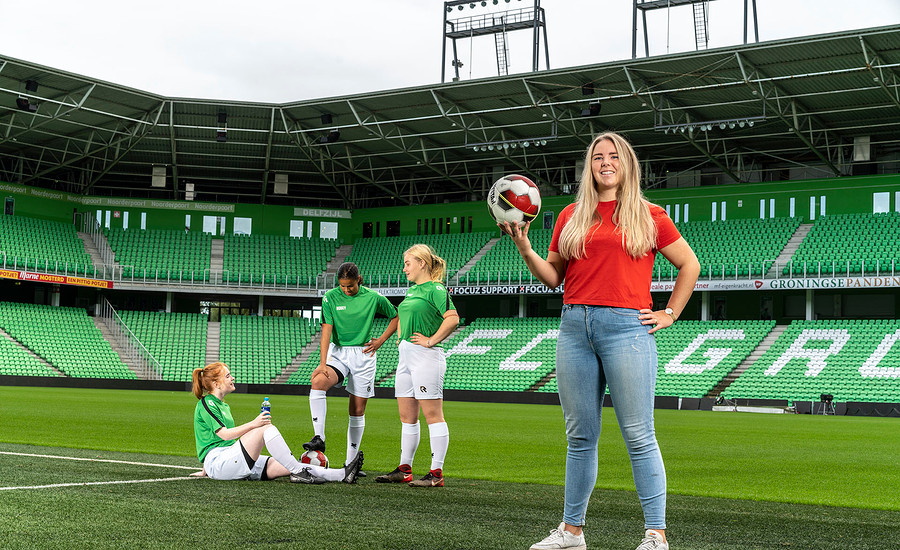Sophie Lindenkamp uses sports as medicine
- News


Sophie Lindenkamp is a fourth-year student of the bachelor's programme Sport Studies. For her final thesis, she developed a product that uses sport as medicine for people who are psychotically vulnerable. With her intervention, Sophie won the Gelderland Sports Climate Incentive Award in March.
Sophie is doing an internship at Pro Persona, an organization that provides specialist mental health care. She conducts her research within the ACT Team (Assertive Commitment Treatment) of Pro Persona Nijmegen. "We support people with early psychosis," explains Sophie. "Largely young adults who are psychotically vulnerable. Our team consists of 80 clients, ten of whom I am involved in and coach in sports."
Going for a run three times a week or a bit of brisk pedalling on your bike does wonders for your brain and has the same effect on our brains as antidepressants. But it doesn't have the drawbacks. How can lifestyle play a greater role in care and in the treatment plan? Pro Persona asked sports expert Sophie how they could implement vitality, health and behaviour modification in healthcare. Sophie: "Using sport as a tool for mental, physical and emotional health, which is the holistic approach to positive health. Mental well-being is much more than what happens in your head. Looking at the whole person and not just the musculoskeletal system or the brain. We have clients who so frozen by fear are and living in their heads so much, who are so far away from their feelings, that they find it mighty beautiful to feel their heartbeat, notice their breath and land in their body. As a sports scientist, you can do a lot for the client's self-recognition process. The combination of exercise and therapy is also very strong. We will see if we can schedule the sports sessions just before or just after the therapy. It has been scientifically proven that your brain is better at absorbing and processing information when you've been active."
For her final thesis, Sophie has developed a practical intervention, 'a professional product', to solve the complex problem of how to motivate young adults with psychotic vulnerability to exercise. "The intervention ensures that sports and exercise will have a larger share in the treatment plan and that clients can receive support from a personal sports coach. A personal trainer who also has soft skills, who is familiar with motivational interviewing techniques, someone who has an insight into diagnosis and psychiatry. It is a big step to let clients work on their own health. For our target group, social anxiety is a major limiting factor in taking action at all."
Sophie has sought collaboration with three programmes of the University of Applied Sciences, Nijmegen (HAN University of Applied Sciences): Applied Psychology, Sports Science and Psychomotor Therapy. "We are going to use students as sports coaches who will guide the clients one-on-one. We want to apply this multidisciplinary and interdisciplinary knowledge in the sports sessions. Interviews with students will start tomorrow."
The project is supported by multiple stakeholders with knowledge, accommodations and sports facilities. Sophie cites an example. "Our hard-core supporter is Tito's Gym, the gym fifty metres from our location. A very intimate, small-scale and low-stimulus environment. We rent the space for twenty hours a month, when the gym is closed. It's a simple project, but at its core it's a perfect symbiosis between everyone involved. We are also supported by Life Goals, an organisation that offers group sports to people with a psychological vulnerability. The goal is for our clients to be guided to sports in groups and to regular sports."
In March, the fourth-year Sports Studies student won the Stimuleringsprijs van het Gelders Sportklimaat (Gelderland Sports Climate Incentive Award). She won the audience prize of 5,000 euros. The jury was also impressed by her intervention and rewarded her with 10,000 euros. With the prize, Sophie can pay for her project for six months. She can rent the gym and offer the students a zero-hours contract. "With part of the prize, I can hire myself as a sports coach slash project leader. There is also room within the budget for fun activities, such as trying out paid spinning or yoga classes."
"This is what happens when you empower students and create a safe environment. It's fantastic that Pro Persona has given me the responsibility and space to do this project. It feels like my baby, to which I can give a solid foundation in the coming months. In September, I'm going to start a minor in Psychomotor Therapy and then do the master's in PMT, because I've discovered that I can really make a difference for people who are vulnerable and having a hard time with the combination of Sports Science and the therapeutic side of exercise," Sophie concludes.

How satisfied are you with the information on this page?